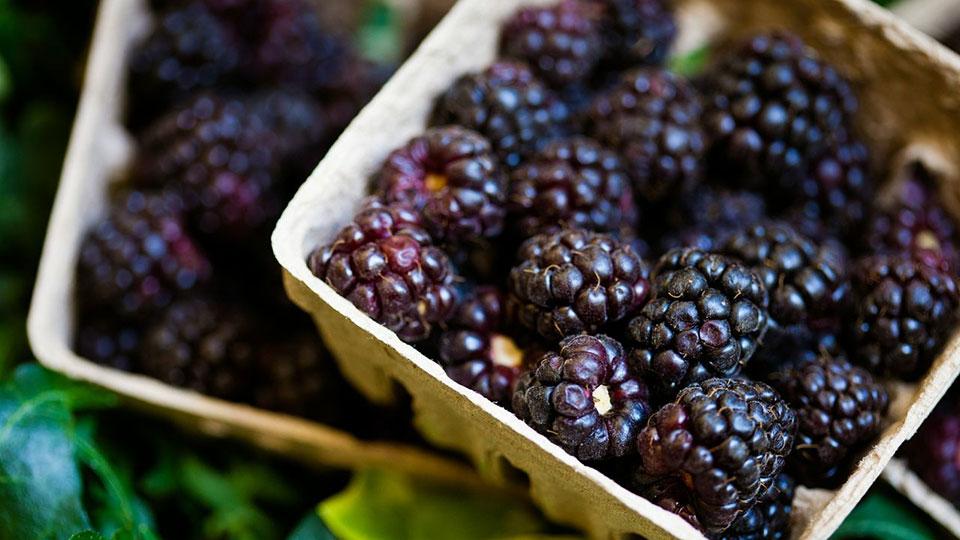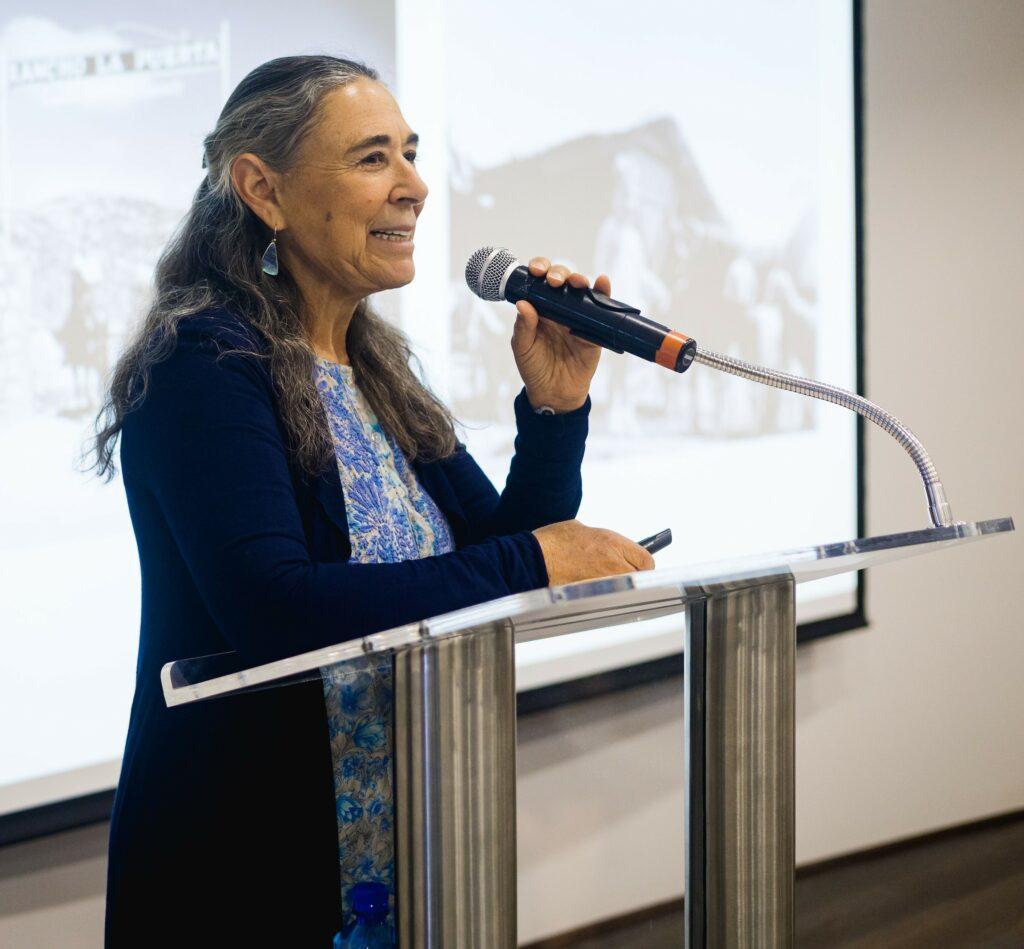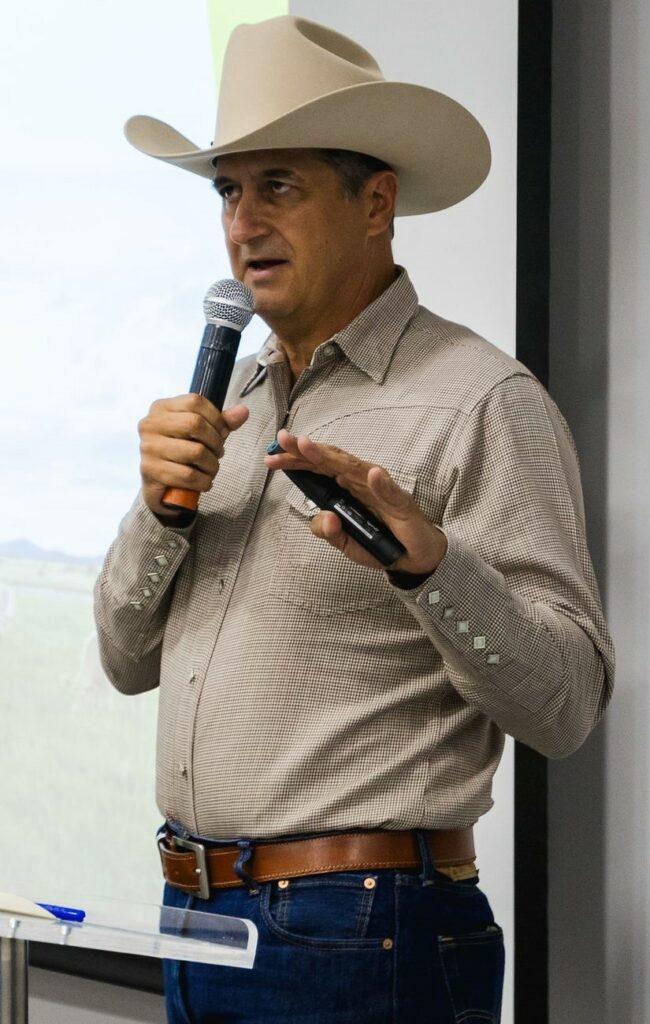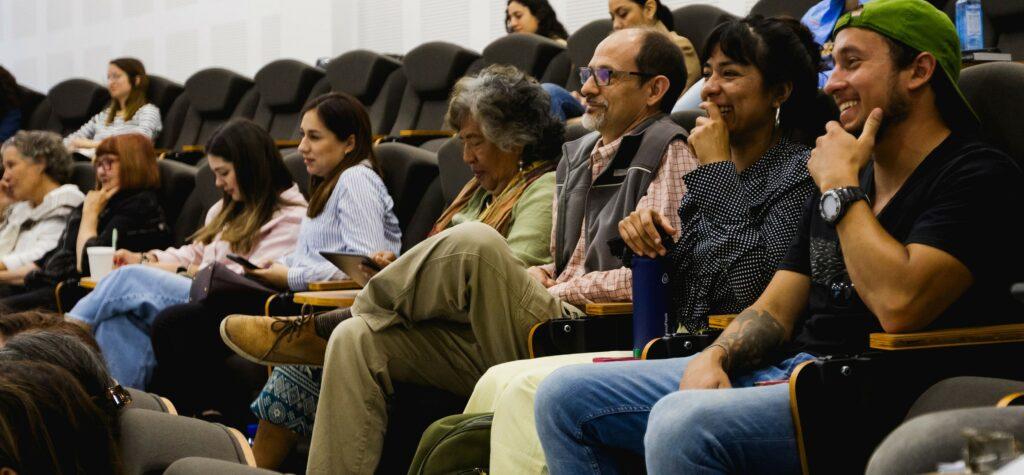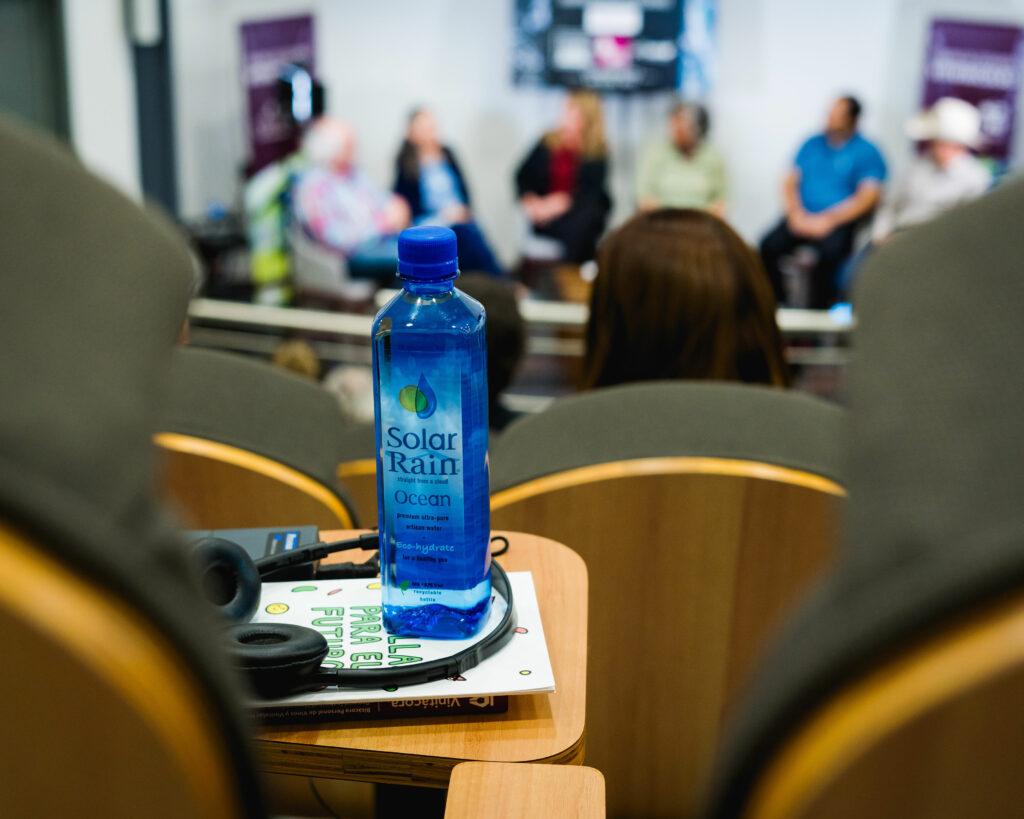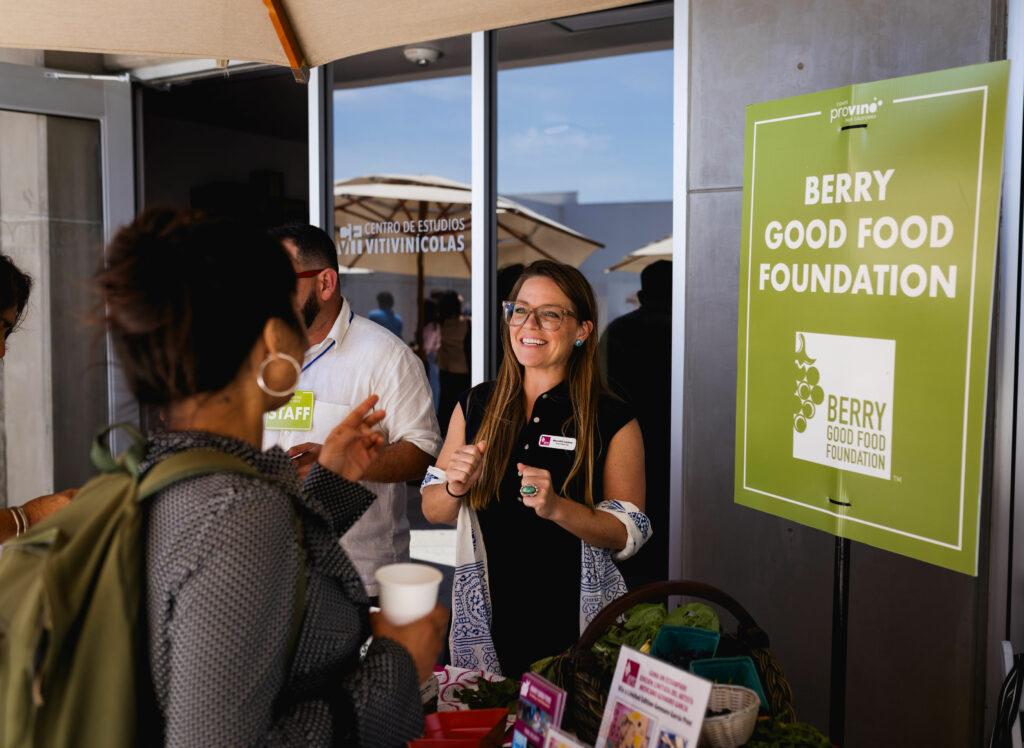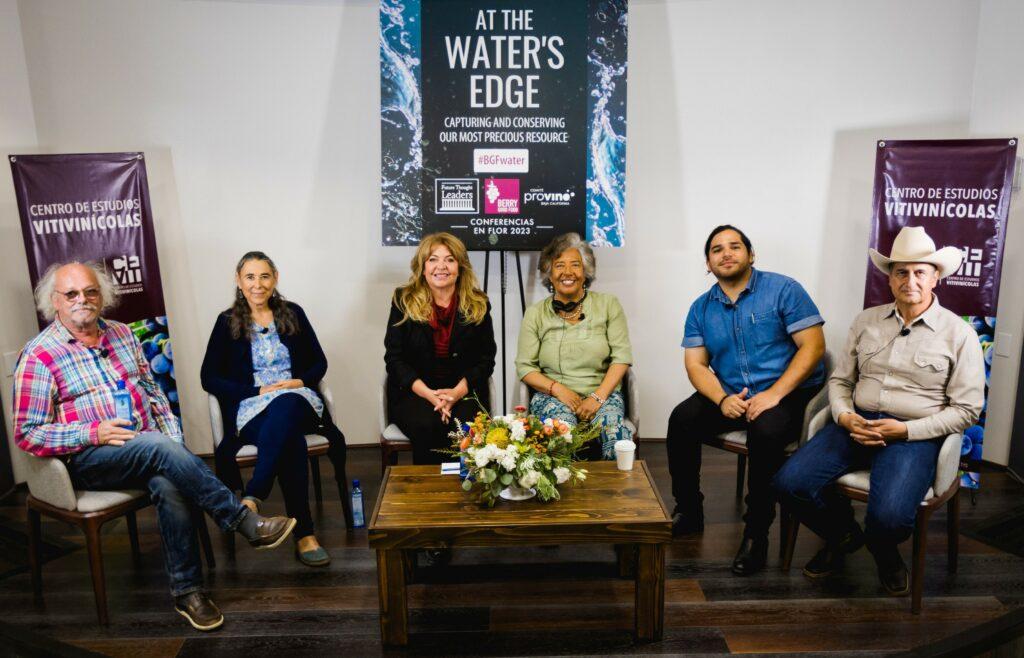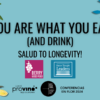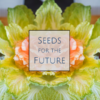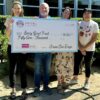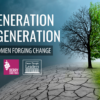On June 9, 2023, Berry Good Food held its 11th Future Thought Leaders panel discussion, “At the Water’s Edge: Capturing and Conserving Our Most Precious Resource,” and invited a diverse group of esteemed experts to delve into solutions for water scarcity, climate challenges, and sustainable resource management.
In conjunction with the Comitè Provino Baja California “Conferencias en Flor” celebration, 100 people, mainly students, gathered at CETYS University in Ensenada, Baja California, Mexico. CETYS University’s goal is to provide education that allows their students to fully engage themselves in the economic, social and cultural improvements of their country – a perfect setting for this discussion.
Prior to the filming of the panel, the day started with an introduction of each panelist by emcee Glenda Galarza, Manager of Vena Cava. This was followed by slide presentations from our panelists BJ Kjaer, Solar Rain Bottled Water’s CEO; Sarah Livia Szekely Brightwood, President of Rancho La Puerta; Dr. Juana Claudia Leyva Aguilera from Universidad Autonoma de Baja CA; Luis Salgado of Watershed Management Group; and Alejandro Carrillo, owner of Las Damas Cattle Ranch. We then took a lunch break and enjoyed an educational fair hosted by Comitè Provino Baja California whose goal is to unify, celebrate, support and represent the wine making community of the Baja California region. This fair consisted of various environmental and social activists from Baja California. The guests were fully engaged in their messaging which was an incredible way to build excitement and segue into our panel discussion.
Once we returned from our break, the filming of the panel began and we delved into a fascinating discussion that explored responsible water consumption, water catchment, water preservation techniques, and more. To start, moderator and BGF founder Michelle Ciccarelli Lerach began a discussion with Alejandro Carrillo, owner of Las Damas Cattle Ranch and an expert in holistic land management practices. He is a huge supporter of “rational grazing” which has increased rainfall on his property by 10% simply through “mimicking nature.” He explained that, contrary to common belief, tilling the earth is not the proper technique to encourage soil health as it releases carbon and compacts the soil which results in the loss of water – on average, we lose 60% of our water due to poor soil treatment. He’d rather feed the soil with mycorrhizal fungi provided by his mixed herd that creates space in the soil, versus compacting, which encourages water absorption and results in healthy soil coverage and living roots, thus “awakening dormancy” resulting in a normal water cycle.
Michelle profoundly added, “Soil is a growing medium that is not alive. There are more microorganisms in one handful of soil then there ever will be human beings on the plant.” This was an eye-opening fact that brought us to our next panelist’s thoughts. Luis Salgado is also a believer in mimicking the natural water cycle. In his work at Watershed Management, he focuses his energy on reintroducing the hydrologic cycle back into our urban environments through green infrastructure and mindful water use by balancing active and passive techniques with a preference on the latter, which in his opinion is more involved and requires closely monitoring the environment through “long and thoughtful observation” and allows for a holistic view and approach to more sustainable practices.
Chiming in, Dr. Juana Claudia Leyva Aguilera who approached the matters from a passionate educational standpoint, felt that the answer behind encouraging people to get more involved is reliant on academia becoming more vocal and engaged in the needs of their communities and utilizing their resources to address them. She firmly believes that the average person wants to help and that they value nature but need help understanding how. The reaction from the student audience was palpable – a point well received.
Sarah Livia Szekely Brightwood shared her story about growing up in Tecate, Baja California, Mexico. As a child she would swim in the local river, something that would be highly discouraged and frankly dangerous in the present day, but, due to the failing infrastructure, 50% of the city’s water runoff flows into the river. She reflected back to her carefree childhood experiences when she lived with the notion that “you elevate your options looking ahead seven generations.” She explained that much like humans, and to Michelle’s previous point, the soil is alive and cannot handle the contaminants that humans are introducing which results in the quality and nutrients in our food. She quoted her father saying, “You cannot raise strong people on degraded…weak soil.” With that always in the forefront of her mind, she’s implemented an anaerobic bio digestion tank system. This system avoids contaminating the aquifer by using the same process and living organisms in our gut to help breakdown the urban sewage resulting in clean, recyclable, usable water – harnessing biology and working with nature’s power – creating safe water for generations to come. Claudia again chimed in that if people were aware of practices like this one, she believes they’d be more participative – people recognize the values of nature. Michelle agreed and went on to share her thoughts on the importance of what we put into the soil and how much it affects the nutrients in our food and how our bodies absorb them.
“All of us on this panel, we’re all mimicking nature” said BJ Kjaer. As an organic avocado farmer practicing natural techniques, he at one point was approached by someone wanting to sell him microbes to help create air space in his soil. When they tested his soil, they asked him if he was sure that he wasn’t already using their product. He was sure and that they were accustomed to testing dead soil. Michelle added that this is a result of conventional farming and pesticides, herbicides, etc. and that nature is fundamental science. Aside from his farming, BJ has created an innovative water desalination process with ocean water that uses the sun, creates clouds and condensation which then goes through an ozone chamber that filters out the heavy metals. From that comes clean water and a byproduct of salt. He bottles the water and sells the salt to local restaurants. This process allows for 83% of the ocean water to be converted into drinking water compared to reverse osmosis systems that are around 50% efficient. He noted that reverse osmosis systems reintroduce heavily salinated water back into the ocean which is a hazard to wildlife and fish as the salt kills the oxygen that they need to survive. His leftover brine water is safe to be added into salt ponds – resulting in one of the most sustainable low-waste drinking waters on the market. His belief is that if we could all treat the free rainwater properly, we’d truly have enough water for all of us. And with that statement came a stage full of nodding heads.
Michelle turned the conversation back to Alejandro and Luis to get their take on how we can convert the free water from nature and improve the percentage of waste. The theme of mimicking nature again comes into play – aligning our processes with what nature intended and does on its own. Alejandro notes that if we can increase our organic matter by just 1% per 2.5 acres, we can drastically improve the water infiltration and conserve a staggering 250,000 liters of water. Luis chimed in with a fact about rainfall in Tucson, Arizona and that more rainwater falls than what the farmers use, so it’s there, but the information, communication and accessible information needs to be improved upon. People want to help but don’t know how.
As the conversation continues, it’s clear that all panelists agree that water is our most precious resource and it’s compromised, but there are many easy, efficient and affordable ways that we can help to reduce our consumption, reuse and recapture water by working with nature, and helping to educate one another. Maybe it starts with the future generations, but it could start now, with any of us. There was a lot of hope that came from this discussion. Typically, we end it at that but because the conversation was so rich, we chose to include the Q&A portion of the event in the video.
The Berry Good Food Foundation would like to kindly thank our friend Yolanda Selene Walther-Meade for her translation services, Comitè Provino Baja California for providing food and photography services, Solar Rain Bottled Water Co. for the generous donation of bottled water to all guests and attendees, and CETYS University for the incredible event space.
Catch up on all of our Future Thought Leaders panel discussions here.
